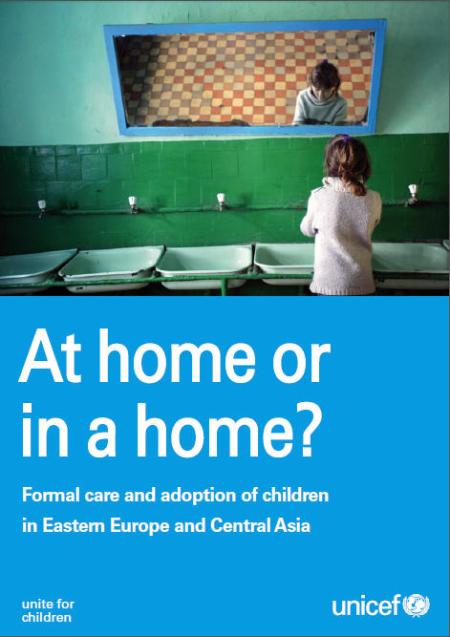- A hozzászóláshoz regisztráció és bejelentkezés szükséges
- 29 megtekintés
This report is about children in Eastern Europe and Central Asia who are deprived of parental care. Despite recent reforms, which have led to an increase in the number of children being placed in alternative families – for example with foster parents, guardians or adoptive parents – the majority of these children are still living in institutions. They live in a child care system which relies heavily on costly residential care and which also undermines their development potential. The report provides an in-depth review and analysis of the latest statistics provided by national statistical offices on children in formal care in these countries. It highlights relevant trends on key issues such as family separation, the placement of children in institutional care and concerns about the abandoning or handing over of small babies to state authorities. Finally, it looks at the heavy reliance on institutions to care for children with disabilities – many people are still under the misapprehension that an institution is the best place for a disabled child. The findings of this report show that there has been impressive progress over the past ten years in the reform of the child care systems in Eastern Europe and Central Asia. They have adjusted their legislation to bring themselves into line with international conventions and other human rights treaties and diversified services for families and children: all countries are introducing family-based alternatives to residential care and several of them are experimenting with transforming old residential care services. These countries have made important changes in the way the services are targeted to families and children. They are developing standards, accreditation and licensing for new services and developing new gatekeeping practices that better control the criteria by which children are placed in institutions. Innovative practices have been introduced on financing and budgeting for child care services. These redirect resources from old residential care institutions to family and child support services, and family-based care. However, these countries have also faced problems implementing plans and new legislation. This is mainly because national plans do not systematically define quantitative targets and fail to fully consider, enforce, or adequately monitor some qualitative issues. Governments must renew their efforts and enlist the support of regional and international partners in particular areas. Based on the findings of this report, UNICEF renews its call for a shift towards preventing children from being separated from their family environment in the first place. Although family-based approaches have gained ground, this report demonstrates that preventative work must be intensified. It also shows us that residential care must be much better managed, so that when staying in an institution really is necessary, it is an exceptional, temporary solution in a system that is properly geared towards family reintegration or longer term and stable family-based resolution. The aim is to give every child a proper home and a sense of belonging, identity and origin. This can be achieved not only by using cash assistance for the most vulnerable families, but also by developing family support services, which provide improved access to health services and education. The success of governments in leading such complex reforms will depend on their capacity to coordinate different actors, both private and public, national and international, and also central, regional and municipal level authorities. It will also rely on their ability to identify and find funds to cover the transitional costs for these reforms.






